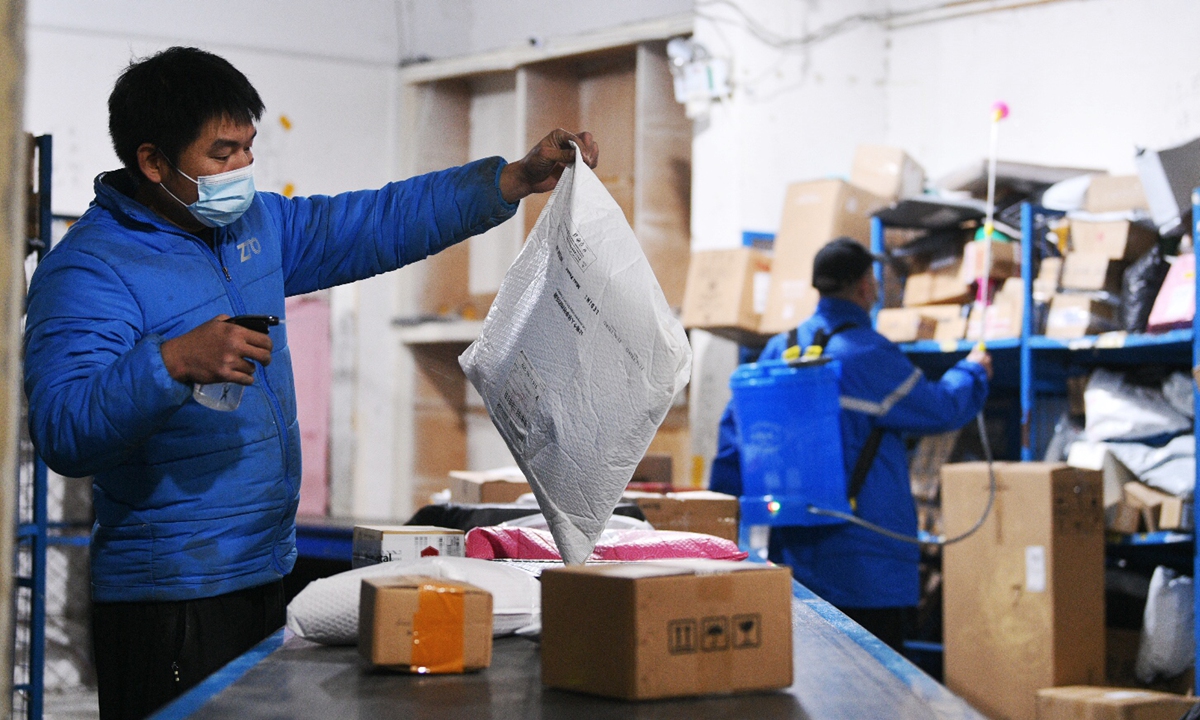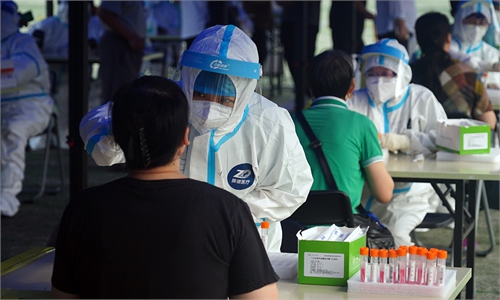
Two delivery men disinfect parcels at a delivery location in Beijing on November 15. Photo: VCG
Beijing will cut inbound flights from provincial-level regions with middle- and high-risk areas for COVID-19 as part of its latest and strictest epidemic prevention measures ahead of the 2022 Winter Olympics, as 21 such regions have reported COVID-19 flare-ups.
Flights to Beijing from the capitals of provincial-level regions that have middle- or high-risk areas for COVID-19 will be limited to one per day with less than 75 percent occupancy, local authorities said at a news conference on Tuesday.
Besides, flights to Beijing from cities that have middle- or high-risk areas are all canceled for now, said Ren Chaozhong, an official of Civil Aviation Administration of China.
Starting from Tuesday at midnight, any person who enters or returns to Beijing must present a negative nucleic acid testing result taken within 48 hours and a green health code, spokesperson for the Beijing government Xu Hejian said at the news conference.
A total of 33 airports, railway stations and bus stations in Beijing will examine the nucleic acid testing results of intercity travelers.
For commuters living near Beijing, the test result is valid for 14 days after the first check.
Those who have stayed in or traveled to counties that have reported COVID-19 cases in the previous 14 days or to counties with land ports should not visit Beijing if it's not necessary, according to the news conference.
As the cold-chain industry has been related to many recent COVID-19 flare-ups in China, Beijing has also tightened the management of imported cold-chain food practitioners.
The city's 33,900 employees in the industry are required to undergo routine nucleic acid testing, said Tang Yunhua, a deputy director of the Beijing Municipal Market Supervision Administration.
Employees at farmers' markets must have negative nucleic acid test results obtained within 72 hours to work, while others are required to have a negative nucleic acid testing result obtained within seven days.
Practitioners eligible for vaccination are also asked to receive booster shots by November 30.
Officials also noted that many parcels sent from other provinces to Beijing have tested positive for COVID-19 in the outer packaging, and reminded citizens to reduce online purchasing from overseas or regions with middle- or high-risk areas.
Beijing has two middle-risk areas for COVID-19 and zero high-risk areas. The city did not report any new confirmed COVID-19 cases on Tuesday.
Global Times

